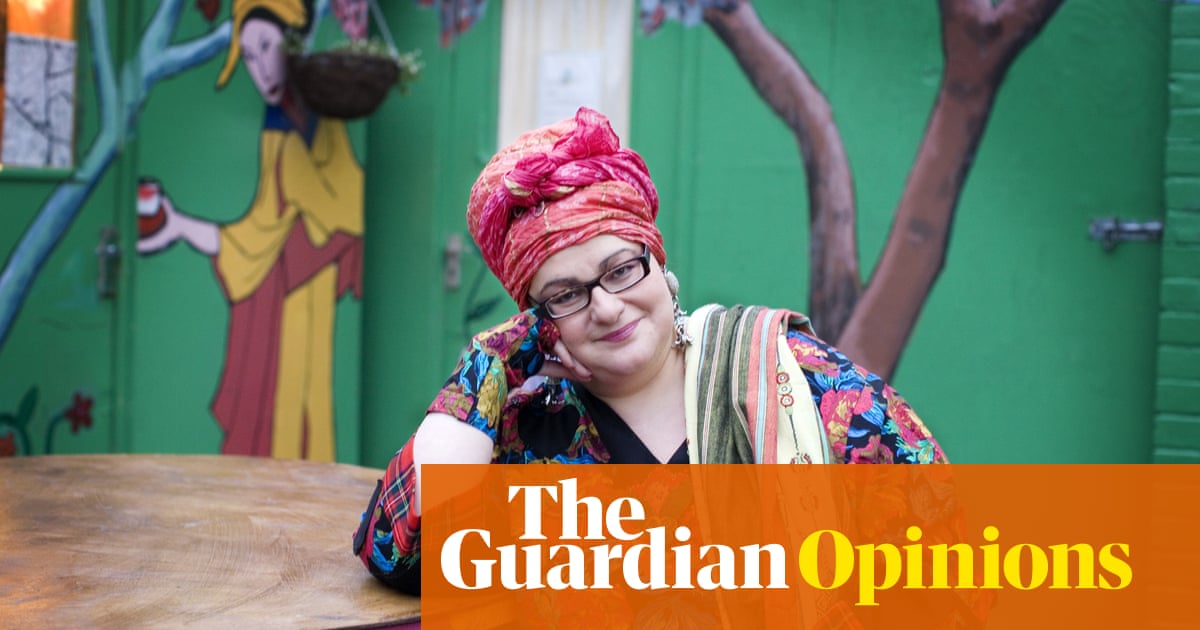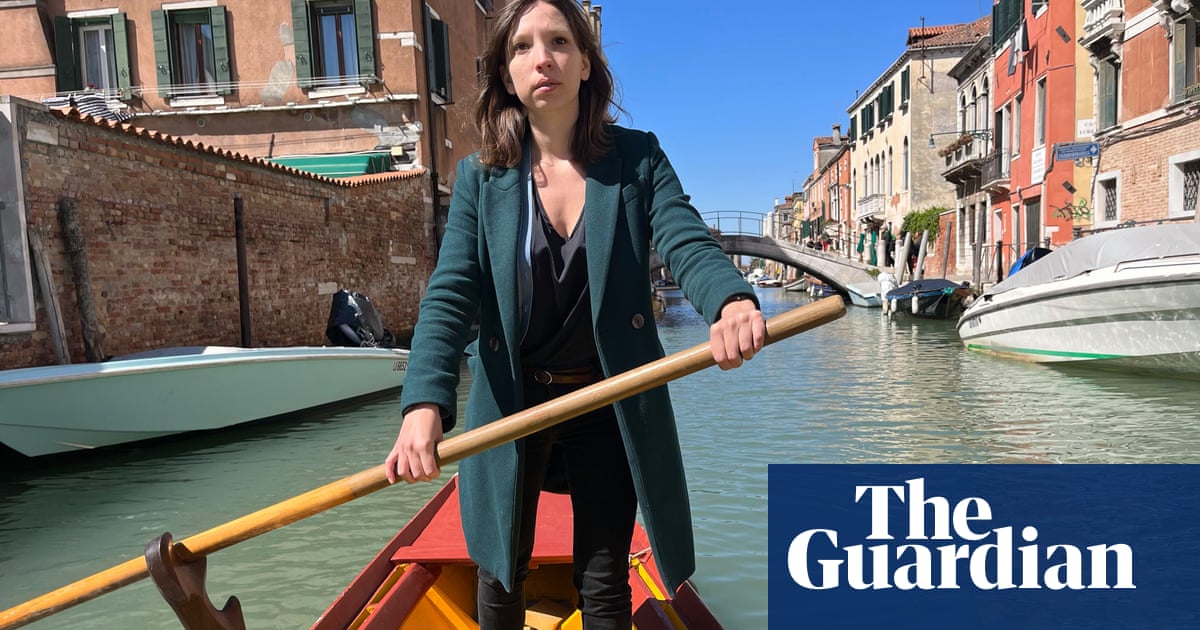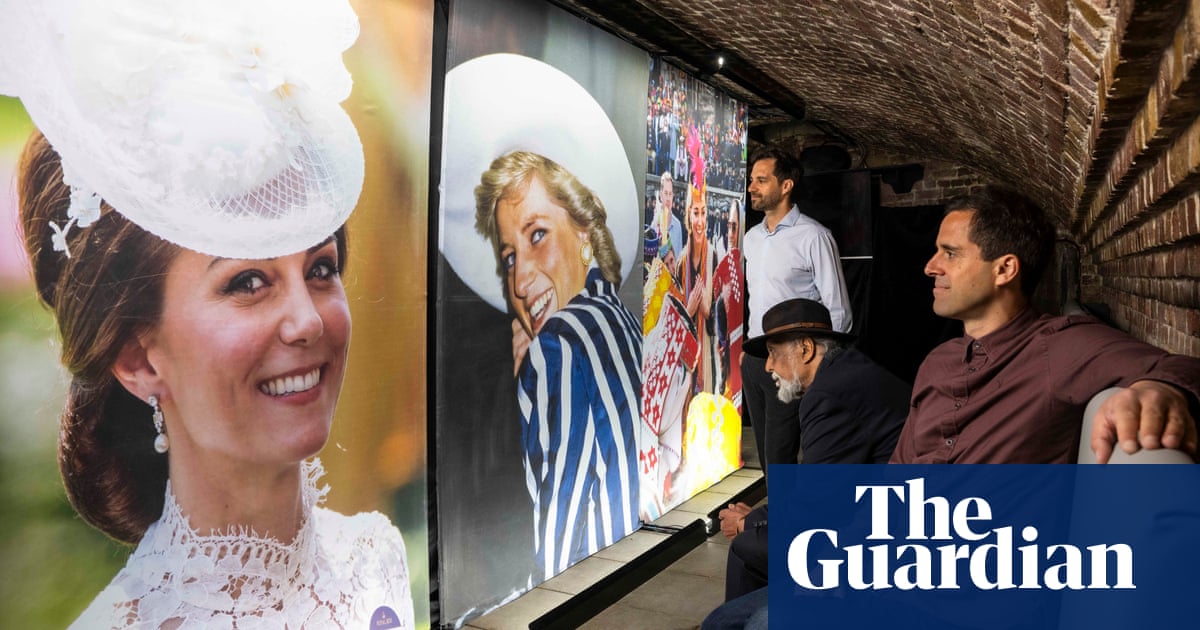
“My kids LOVE it!” “It’s MASSIVE in our house!” The WhatsApp group for my daughter’s reception-year class – usually home to messages about lost school jumpers and tips for half-term clubs – explodes into emojis and capital letters at the mention of Disney’s Encanto. One obsessed eight-year-old has learned the words to all the songs – and so have most of their classmates. A’s five-year-old is demanding to know how to say the words in Spanish. Encanto-mania is taking over kids’ lives.
For the uninitiated, Encanto (which is Spanish for “charm”) is Disney’s 60th animated feature film, featuring ridiculously catchy songs by Lin-Manuel Miranda, the composer of Hamilton. It tells the tale of the magical Madrigal family who live in an enchanted house hidden in the mountains of Colombia. Every member of the clan is blessed with an extraordinary gift – except 15-year-old Mirabel (voiced by Brooklyn Nine-Nine’s Stephanie Beatriz) who is struggling to find her place in the family.
Encanto is not so much a fairytale as a family saga with a sprinkling of magical realism. It’s about unconditional love, understanding your worth and the burden of living up to family expectations. It’s possible that Covid lockdowns have put us in the mood for a film about complex family dynamics – with added Miranda hip-shakers.
In the US, Encanto opened in cinemas over Thanksgiving weekend in November a few weeks after children aged from five to 11 became eligible for coronavirus vaccinations. But its arrival coincided with news of the Omicron variant, which dented ticket sales. The movie made $40.3m (£30m) in the US during the holiday break, plus $29.3m in the rest of the world. Nothing to write home about. “A fair opening by pandemic standards, and a weak opening by Disney+ standards,” said an expert in the New York Times. It launched on Disney+ on Christmas Eve.
Two months after its theatrical release, Encanto is an unexpected Disney hit – a cultural moment and craze. Plenty of families I speak to spent Christmas watching it on repeat, playing the songs from breakfast to bedtime. The cumulative global total of streams from the soundtrack is 1.5bn. “I think we’re probably responsible for 50% of plays in the UK” jokes one of the WhatsApp mums. The industry magazine Toy Insider reported that an $80 Encanto Magical Casa Madrigal was one of the top-selling toys over Christmas.
And we need to talk about Bruno. Last week, the Encanto song We Don’t Talk About Bruno reached No 1 in the UK chart, the first original Disney song to do so. It’s an ensemble number sung by the Madrigals and tells the story of their long-lost uncle, Bruno, the outcast of the family (he prophesied they would all lose their magical powers). The song is classic Miranda musical fusion – Cuban folk with Broadway and hip-hop. It’s been viewed 137m times on YouTube. One critic joked that it was the second most addictive thing to come out of Colombia.
Not even Jared Bush, one of the film’s two directors, expected Bruno to be the breakout song. Speaking over Zoom from Los Angeles he shakes his head with disbelief, grinning: “What’s happening now, the Bruno song, the fact that it’s taken off and everyone wants to sing those parts …” He pauses to take it all in. “There’s no way I’d have thought that’s the song that would go kerchunk. I love it so much, but it’s a complicated song that requires context.”
Bush first got an inkling of Encanto-mania when people started telling him to check out TikTok. “People were like: ‘Have you seen these TikToks? You’ve got to get an account, man.’” The #Encanto hashtag has been viewed more than 13.6bn times on the app, where users are sharing videos of themselves lip-synching and acting along to scenes.
TikTok has even created Encanto social media stars. In December, 23-year-old Maribel Martinez posted a video of herself lip-syncing to Surface Pressure – for my money the catchiest song of the movie. It’s sung by middle sister Luisa Madrigal, who has superhuman strength but feels the stress of always having to be the strong one. “Give it to your sister, it doesn’t hurt, and see if she can handle every family burden,” Luisa sings. Martinez filmed herself after friends pointed out her resemblance to Luisa. Her video has been viewed more than 35m times.
Martinez added a heartfelt caption to the video: “This is more than me just looking like her. It tells my story.” In an interview with NBC News she explained how the film held up a mirror to her experiences growing up: “[It] relates to a Hispanic community where the family dynamic is brought up like that and we’re put under so much pressure.”
I ask Yvett Merino, one of the producers of the film who is Latina, about the connection Latinx audiences have with Encanto. Merino’s path to the Disney boardroom was not a traditional one; after studying sociology, she became a social worker for a year, then joined Disney as a temp and worked her way up. She tells me that Latinx Disney staff formed a group called Familia, which became a kind of advisory board to the film: they met once a month to talk about their lives and experiences, read draft scripts and watched early cuts. Their feedback was blunt, says Merino, laughing: “I joked that they were a real family, because they would be honest. When they didn’t like it, they let us know.”
Disney worked hard to capture an authentic sense of culture and place in Encanto. The film-makers worked with Colombian documentary-makers and writers on recce trips. They cast actors with Colombian heritage: Stephanie Beatriz’s father is Colombian; John Leguizamo, who voices Bruno, was born in the capital, Bogotá. Colombian television star María Cecilia Botero voices Alma, Mirabel’s grandmother.
It’s striking how many of the film-makers are Latinx. Merino is of Mexican heritage while Miranda is of Puerto Rican descent. Latina composer Germaine Franco, who orchestrated and arranged Miranda’s songs, grew up 10 minutes from the Mexican border in Texas, immersed in Latin music. Her stunning score features traditional folk instruments that are indigenous to Colombia, she tells me, including the arpa llanera, a harp (different from both a Mexican and Paraguayan harp, she says); and a flute played in Colombia called the gaita, which sounds like a bird. “When people hear the music and they say yeah, that sounds like Colombian music or that sounds like Latin music, then they can feel proud about it. They are seeing themselves, hearing themselves.”
Franco is the first woman to score a Disney animated feature, and was the first Latina composer invited to join the Academy of Motion Picture Arts and Sciences’ music branch. She says of Disney Animation hiring more diverse voices: “I notice the difference in the meetings. Having Yvett Merino sitting in and Charise [Castro Smith, co-writer of Encanto] sitting in, I’m not the only person of colour in the room, which has been my experience on many projects. I feel like Disney is making the effort and they are showing their support by hiring people of colour.” The studio has, however, come under fire this week after actor Peter Dinklage criticised its “backwards” live action remake of Snow White and the Seven Dwarves.
The writer she mentions, Charise Castro Smith, is a playwright hired as a co-writer on the screenplay who went on to co-direct the film. (“The best decision of the movie” jokes Bush). A first-generation Cuban American, one of the first scenes Castro Smith worked on was the prologue that explains the Madrigal “miracle”. In flashback, we see Abuela Alma, Mirabel’s grandmother, as a young woman fleeing her home with her husband, Pedro. When Pedro sacrifices himself to save his family, Alma’s grief sparks the miracle that gives her family its gift. But over the years Alma puts tremendous pressure on her family to live up to their gift.
Merino believes that this storyline of intergenerational trauma and expectation goes some way to explain the emotional responses from Latinx audiences – such as Maribel Martinez’s TikTok followers. These are first- and second-generation immigrants who grew up listening to stories of their parents and grandparents’ sacrifices: “These stories stay with you,” Merino says. “I heard how hard my parents worked to give us a better life. You hold that in you. You grow up with that pressure of saying: I have to do this because of how much they sacrificed. I think that’s really part of what hits, what is connecting with people.”
And it’s not just the Latinx community. I speak to a London mother of south Asian heritage who feels a connection to the family dynamics in Encanto. “The whole film speaks to a different family unit. People from non-white backgrounds can really identify with the complexity of a multi-generational family.”
Her kids are not regular Disney watchers, “My older daughter doesn’t like princesses and she’s a bit of a film snob.” But they are on their fifth viewing of Encanto. “There’s something about a really good Disney that hits,” she says. “Something that you can put into practice straight away. With Encanto, it’s the message: Let’s be gentler to each other. We’ve all been through shit. It’s an understanding that our parents, our grandparents, had a tough time of it; things were different 50 years ago.”
One last question for Merino – it might be a bit cheesy, I warn. As a child, how would she have felt watching Encanto? “It’s not cheesy at all! I always say this is the film I wished I would have had as a little girl. Growing up, I didn’t see stories that looked like my family, that looked like me.
“I have a son who is 12 and a seven-year-old daughter. I get to see Encanto through their eyes. I know that my children are growing up seeing themselves. My daughter came home yesterday saying that everyone is singing the Bruno song at school. When the dolls first came, she opened it up and was like: She’s got brown eyes like me! She immediately saw herself in the dolls.”
Over on the school WhatsApp, a mum shares a video of her daughter doing an expressive dance in front of the telly, Encanto playing. She is in her own universe, dancing with the kind of over-dramatic intensity you might remember from virals of kids belting out Let it Go from Frozen a few years ago. I check the Disney online store: Mirabel dresses are sold out.
Encanto is in cinemas and on Disney+
This article was amended on 28 January 2022. In the film, Abuela Alma’s husband is Pedro, not Pepa as an earlier version said.












